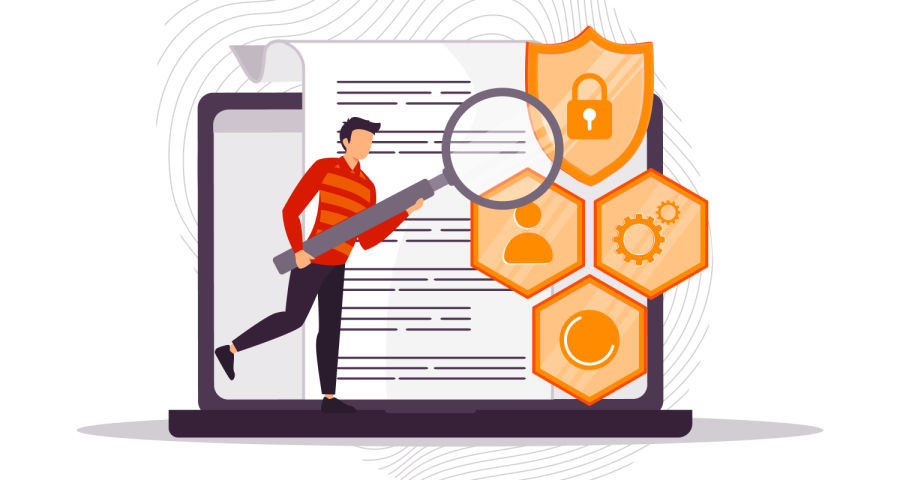//
Jul 2, 2024
How CRM Systems Redefine Marketing Personalization Strategies
Understanding and responding to customer needs has become more crucial than ever.
With increasing numbers of and unable to manage personalized marketing strategies, mass customization and personalization solutions have catapulted in their influence and prominence.
CRM (Customer Relationship Management) systems—tools designed to streamline and enhance the way businesses manage and analyze customer interactions–have redefined personalized marketing strategies and automation complexity.
At Watermark, we understand the complexity of personalization at scale. We grasp the resources needed and the returns that can be captured. From tracking calls and emails to projecting future trends, marketers can leverage CRM systems to their advantage in many ways.
What Are CRM Systems?

are like the Swiss Army knives of business software. They help you manage relationships with customers by tracking interactions, managing data, and providing insights. These systems integrate various functionalities, from simple contact management to advanced analytics, allowing businesses to maintain a detailed record of customer interactions across multiple channels.
They’re not just software; they’re your business’s new best friends, ready to assist with everything from organizing contacts to predicting market trends.
Why Are CRM Systems Important?
CRM systems are the unsung heroes of modern marketing, consolidating customer information, providing advanced analytical tools, and boosting overall efficiency. Here’s a closer look at how they can benefit your business:
Information Consolidation
One of the primary benefits of CRM systems is their ability to wrangle information like a seasoned cowboy herding cattle. By a, CRM systems reduce informational clutter, making it easier for teams to access and manage important details. This centralization not only saves time but also reduces the potential for human error, leading to more accurate and reliable data.
Advanced Tools
The best CRM systems offer robust analytical tools that can measure metrics like user engagement, demographic information, and search trends. These insights are like gold nuggets, invaluable for developing and refining marketing strategies. For example, by analyzing , businesses can identify which content resonates most with their audience and adjust their strategies accordingly.
Cost Savings
While CRM systems require an initial investment, they often result in significant . By combining multiple functionalities into one platform, businesses can reduce the need for additional tools and software. This integration leads to enhanced productivity, better customer retention, and ultimately, increased profits.
How Can a CRM Enhance Marketing Personalization?

Marketing personalization is all about tailoring your approach to meet the specific needs and preferences of each customer. CRM systems make this complex task manageable by offering tools that streamline and automate many of the processes involved.
Improved Customer Relations
CRM systems streamline customer communication and centralize data, making it easier to manage relationships and address customer concerns. Imagine having a Rolodex on steroids that not only tracks every interaction but also reminds you when to follow up, ensuring no customer is left in the lurch.
Example:
Consider a scenario where a sales representative needs to follow up with a potential lead who showed interest in a product demo. With a CRM system, the rep can set a reminder for a follow-up call and access the entire history of interactions with the lead. This ensures a seamless, personalized experience that makes the customer feel valued and understood.
Deeper Understanding of Customer Needs
With a centralized database, CRM systems enable businesses to gain deeper insights into customer behavior. Metrics such as pageviews, email clicks, and website sessions can reveal important patterns and preferences. These insights allow businesses to tailor their marketing strategies to personalize the journey to the needs and preferences of their customers.
Example:
A company analyzing CRM data might discover that a particular segment of customers frequently engages with content about sustainability. Armed with this insight, the marketing team can create targeted campaigns highlighting the company's eco-friendly practices and products, thereby resonating more deeply with this customer segment.
Speeding Up Workflows
The fast-paced nature of digital marketing requires businesses to stay agile and responsive. CRM systems facilitate real-time updates and , allowing teams to implement changes quickly. This agility is crucial for staying ahead of market trends and maintaining a competitive edge.
Example:
A marketing team might need to adjust their strategy based on a sudden shift in consumer behavior. With a CRM system, they can quickly , identify the change, and pivot their approach almost instantly. This could involve anything from tweaking email campaign content to adjusting social media strategies to better align with the new trend.
Better Data Analysis and Predictability
Effective marketing strategies rely on accurate predictions of customer behavior. CRM systems offer advanced data analysis tools that can forecast future trends and outcomes. By leveraging these predictive insights, businesses can make informed decisions and adjust their strategies to better align with customer expectations.
Example:
A CRM system might analyze historical data to predict which products are likely to be in high demand during . This information enables the marketing team to prepare targeted promotions and stock adjustments well in advance, ensuring they meet customer demand and maximize sales opportunities.
Improved Clarity
CRM systems provide a unified view of the , ensuring that all team members have a clear understanding of who the customer is and how they interact with the business. This clarity enhances decision-making and ensures that everyone is working towards shared goals and standards.
Example:
When a customer reaches out with a support issue, the support team can access the CRM to see the customer's entire interaction history. This holistic view allows the team to provide a more informed and empathetic response, improving the customer experience and building trust.
Personalized Content Delivery
CRM systems enable businesses to deliver personalized content to their customers at the right time and through the right channels. By analyzing customer data, CRM systems can help identify the best moments to engage with customers and the most effective content to use.
Example:
An online retailer can use CRM data to send personalized product recommendations to customers based on their browsing and purchase history. If a customer frequently buys athletic wear, the system can automatically send them updates on new arrivals or exclusive discounts in that category, increasing the likelihood of repeat purchases.
Enhanced Customer Segmentation

CRM systems allow for more sophisticated . By dividing the customer base into distinct groups based on specific criteria (such as demographics, purchase history, or engagement levels), businesses can create highly targeted marketing campaigns that resonate with each segment.
Example:
A financial services company might use CRM segmentation to target young professionals with personalized investment advice, while offering retirees different content focused on retirement planning. This level of personalization ensures that each customer receives relevant and valuable information, enhancing their overall experience with the brand.
Real-Time Personalization
One of the most powerful features of CRM systems is the ability to personalize interactions in real-time. This capability is particularly useful in digital marketing, where customer behavior can change rapidly.
Example:
An e-commerce site can use CRM data to adjust the products displayed to a returning visitor based on their previous browsing history and purchases. If a customer has shown interest in a particular product category but hasn’t made a purchase yet, the site can highlight special offers or new arrivals in that category, encouraging them to complete their purchase.
Automating Routine Tasks
CRM systems can automate many routine marketing tasks, freeing up time for marketing teams to focus on more strategic activities. Automation features include sending follow-up emails, scheduling social media posts, and updating customer records.
Example:
A busy marketing team can set up automated email workflows that trigger based on customer behavior. For instance, when a customer abandons their shopping cart, the CRM can automatically send a reminder email with a special discount to entice them to complete their purchase. This ensures timely and relevant communication without manual intervention.
Integrating Multichannel Marketing Efforts
CRM systems enable seamless integration across various marketing channels, ensuring a consistent and personalized experience for customers, whether they interact with your brand via email, social media, or in-store.
Example:
A customer who interacts with a brand on social media by liking a post about a new product can receive a with more details about the product and a special offer. This integrated approach ensures that marketing efforts are cohesive and personalized across all channels.
5 Essential Marketing Personalization Strategies

CRM systems shine when it comes to automating and personalizing marketing messaging across various channels and stages of the buyer journey. By leveraging CRM automation, businesses can ensure that each customer interaction is tailored, timely, and relevant.
1. Personalized Email Campaigns
Consider a business launching a personalized . Using CRM automation, the company can segment its customer base based on criteria like purchase history, engagement levels, or demographics. For instance, if a customer recently purchased a new smartphone, the CRM can automatically send follow-up emails suggesting compatible accessories, offering tips on using the new device, or providing information on an extended warranty.
2. Dynamic Social Media Engagement
On , CRM systems can track customer interactions and preferences to deliver personalized content. For example, a CRM might identify that a customer frequently engages with posts about eco-friendly products. The system can then automate personalized messages promoting new sustainable products or special offers directly to that customer’s social media feed, enhancing engagement and conversion rates.
3. Real-Time Website Personalization
CRM automation can also be used to personalize a visitor’s experience on a company’s website in real time. If a returning visitor has previously browsed specific categories, the CRM can dynamically adjust the homepage to highlight products or content from those categories, improving the likelihood of conversion.
4. Automated Customer Journeys
Throughout the buyer lifecycle, CRM systems can automate the delivery of personalized messages at key touchpoints. For instance, when a lead signs up for a newsletter, the CRM can trigger a welcome email series that introduces the brand, offers introductory discounts, and provides valuable resources. As the lead progresses, the CRM can send targeted content based on their interactions, such as case studies or testimonials relevant to their industry, helping to nurture the lead into a customer.
5. Post-Purchase Engagement
After a purchase, CRM automation can continue to enhance customer relationships. For example, a CRM system can automatically send thank you emails, request feedback, and suggest related products or services. If a customer hasn’t interacted with the brand in a while, the CRM can send re-engagement messages with personalized offers or updates, ensuring the customer feels valued and remains engaged.
Partnering with Watermark
Maximizing the value of CRM systems requires expertise and a strategic approach. combines data-driven methods with a compassionate understanding of marketing to help businesses achieve their goals. The Watermark team can assist with the integration and optimization and ensure that your business leverages their CRM effectively to drive growth.

Enable Intent-driven, Experience-focused Personalizations Today
CRM systems are invaluable tools for redefining marketing personalization strategies.
By consolidating information, providing advanced analytical tools, and improving workflow efficiency, CRM systems enable businesses to better understand and respond to customer needs.
With the right implementation and strategic use, CRM systems can significantly enhance marketing personalization efforts, leading to improved customer relations, deeper insights, and greater overall success.
Partnering with experts like Watermark can help businesses unlock the full potential of their CRM systems, transforming data into strategic opportunities.
For more information or to , contact Watermark today and discover how we can help you leverage CRM systems to their fullest potential.







